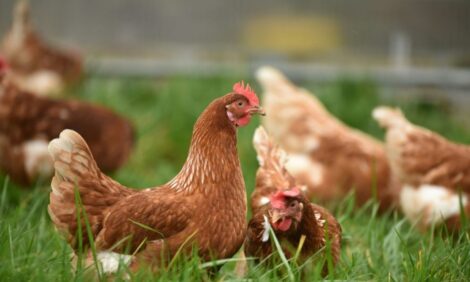



Weekly global protein digest: Tyson requires vaccines, Mexico bans DR pork, China suspends meat from Brazil plant
Livestock analyst Jim Wyckoff shares this week's protein news highlights.China suspends meat imports from a Brazil processing plant
China has reportedly banned meat imports from the food processor BRF SA’s Lucas Rio Verde plant located in central Brazil, the company said in a statement yesterday. The plant processes pork and chicken. The company said it would take steps to reverse the ban, working in conjunction with Chinese and Brazilian authorities, but it did not disclose what the holdup was. BRF did say that it was not officially notified of the ban and only learned of the suspension when it appeared on China’s customs website.
Tyson Foods to require Covid vaccinations for its US workers
Tyson said it would offer a $200 bonus to its front-line workers as an incentive, though some union leaders pushed back, saying U.S. regulators hadn’t yet fully approved the vaccines. Tyson announced Tuesday it will require its workforce to be vaccinated for Covid but is getting pushback from the United Food and Commercial Workers International (UFCWI) union. "We did not take this decision lightly," Tyson Chief Executive Donnie King said. "We have spent months encouraging our team members to get vaccinated — today, under half of our team members are." Tyson said it was negotiating with unions on the action. While UFCWI President Marc Perrone said the union has encouraged members to get vaccinated, they are concerned Tyson is implementing the mandate “before the FDA has fully approved the vaccine.” The union is calling on food companies to negotiate directly with front-line workers on any vaccination order and they want companies to provide “paid vaccine leave.” Tyson said that union workers make up about one-third of their hourly workforce.
Mexico bans pork imports from Dominican Republic
Mexico’s agriculture ministry has banned pork and derived products from the Dominican Republic and other countries dealing with African swine fever. The country is also increasing its scans of baggage coming into the country from the Dominican Republic for “product risk,” the ag ministry said in a statement. The U.S. already had bans in place against pork from the Dominican Republic.
New animal welfare rules could cause a bacon shortage in California
At the beginning of next year, California will begin enforcing an animal welfare proposition approved overwhelmingly by voters in 2018 that requires more space for breeding pigs, egg-laying chickens and veal calves. According to the Associated Press, while national veal and egg producers are optimistic they can meet the new standards, only 4% of hog operations now comply with the new rules. “That means that unless the courts intervene or the state temporarily allows non-compliant meat to be sold in the state, California will lose almost all of its pork supply, much of which comes from Iowa, and pork producers will face higher costs to regain a key market,” the AP item said.
National Milk Producers Federation details policy “cliffhangers”
The US dairy sector is still waiting for action on by Congress and the Biden administration, including final approval of a dairy donation program and detail on Covid-19 producer aid. “Cliffhangers are great in movies, but they’re frustrating in public policy,” said National Milk Producers Federation (NMPF) President and CEO Jim Mulhern in his August 3 CEO’s Corner newsletter. “Congress is entering its traditional August recess with a big not-yet-done list on topics ranging from infrastructure to immigration. For the sake of dairy farmers, we’d like to see faster movement.”
Mulhern detailed four policy issues of elevated importance to the dairy sector that are still pending action: USDA’s Dairy Donation Program and Covid-19 aid payments to producers, new climate smart ag legislative measures, and ag labor reform.
On the donation program, Mulhern notes that the $400 million effort was enacted under the December 2020 omnibus spending/Covid-19 relief package and is “largely ready to go, thanks to USDA’s diligence.” The program will reimburse dairy producers for the donation of surplus milk supplies to food banks and other anti-hunger organizations, including retroactive reimbursement for any donations made after Dec. 27, 2020 — when the omnibus package was signed into law.
Regulations implementing the program were submitted for review to the White House Office of Management and Budget (OMB) on June 9 and are still listed as pending. “Final details are expected to be worked out soon, encouraging dairy community efforts to aid needy families through food banks and other distributors,” Mulhern wrote.
Separately, dairy producers are still awaiting initial details from USDA on its plans for direct Covid-19 relief payments to producers. The department aims to reimburse producers for uncompensated losses related to market impacts from the pandemic and deliver a supplemental Dairy Margin Coverage (DMC) program payment. The DMC effort would allow smaller producers who had annual production of less than five million pounds of milk in 2014, but which subsequently grew, to receive payments. “This not only aids small producers; it increases the amount of money available to dairy in the next farm bill,” Mulhern said of the supplemental DMC effort.









